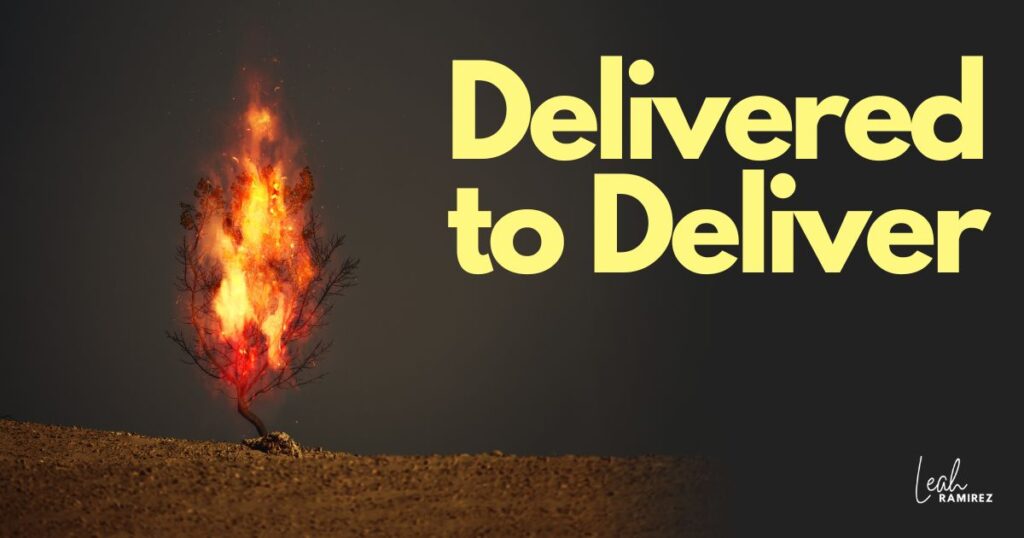From Deliverance to Deliverer: Moses’ Journey in the Wilderness
July 26, 2023
Ask for the Nation
Leah Ramirez

Exodus 2
16 Now the priest of Midian had seven daughters, and they came and drew water and filled the troughs to water their father’s flock. 17 The shepherds came and drove them away, but Moses stood up and saved them, and watered their flock. 18 When they came home to their father Reuel, he said, “How is it that you have come home so soon today?” 19 They said, “An Egyptian delivered us out of the hand of the shepherds and even drew water for us and watered the flock.”
40 years before God met Moses in the burning bush, calling him out of obscurity and into a national deliverance ministry, Moses knew he was a deliverer. Deep, deep down, like a fire shut up in his bones, Moses was already trying to be who he knew he was.
Raised as a son in Pharaoh’s house, Moses couldn’t bear the suffering of the Israelites in Egypt. He reacted passionately, striking down an Egyptian man mistreating an Israelite and burying the body. Fearing discovery, Moses fled for his life into the wilderness.
In the desert, another act of injustice caught Moses’ attention, and he stepped in to help a family in need. They welcomed him, and this family would become his own.
Moses knew he was a deliverer, called to act in the face of injustice. This identity wasn’t born at the burning bush; it was already within him, but there were other things mixed in too.
To cleanse Moses from the “other stuff,” God led him into the wilderness—a process that wasn’t easy or quick. There, God killed his self-reliant ideas and false identity, stripping away idols and distorted dependencies.
Before becoming a deliverer for Israel, Moses needed deliverance from Egypt. The wilderness was God’s chosen place for transformation. It’s where ideas and interpretations end, leaving only fellowship—with God and within ourselves. And that’s more than enough.
God’s eventual call would come 40 years later, at the burning bush, when He summoned Moses to deliver Israel from Egyptian bondage.
Why the wilderness? Only those who’ve been delivered can set others free. So, if God has driven you to a solitary place, let Him work in you. Stay still. Stay quiet. He’s in the whispers, in the seemingly overlooked things, in it all.
God is raising men and women who will endure the process, emerging free, clean, and ready. Devoted ones who won’t despise the Lord’s dealings, but humbly trust the One who loves us best and most.
If you find yourself in that solitary place today, trust the process. The Lord sees the end from the beginning. Keep saying yes. Yes. Yes. And again, yes.